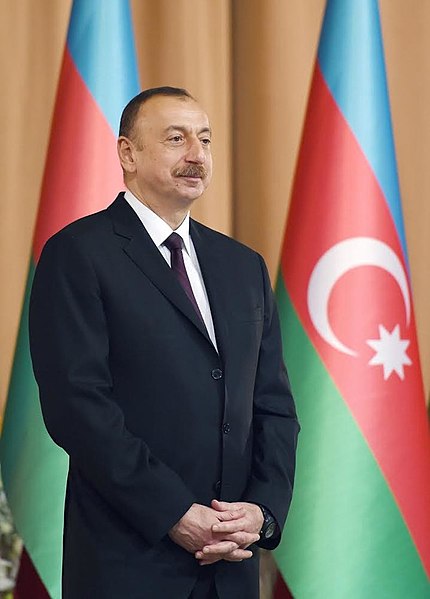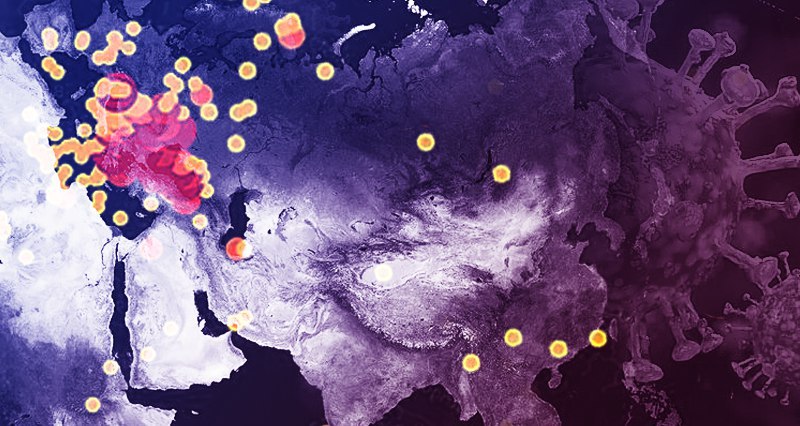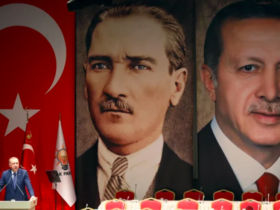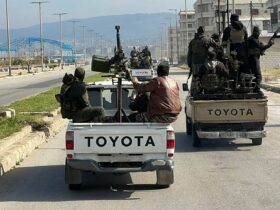So far, the coronavirus has affected Eurasia far less than Asia, Western Europe and the United States. Yet, countries across the continent have introduced emergency regimes or increased security measures to fight the spread of Covid-19. There are several possible explanations as to why the region has not been affected by a massive pandemic, although each country has its own peculiarities.
Russia: buying time
Many people wonder why Russia, a huge country which neighbors China, has not found itself in a situation as bad as Italy or the United States – 3548 confirmed cases.
There are several reasons: firstly, the country closed its border with China early on. Secondly, the main wave of the virus came not from China, but from Europe after the epidemic had already spread there – Moscow only faced problems when people traveling to Italy, France, Germany, the US, Gulf countries, etc. started to return.
Russian President Vladimir Putin has stressed that it is possible to prevent a large increase in the number of infected people, urging that Russian take into account the experience of other countries.
“Our actions must be reasonable and professional. It is this approach that allowed us today to buy time, to contain the explosive spread of coronavirus infection in previous weeks. And we need to use that time to our fullest and most effective extent,” the president said.
Today Putin announced that the country’s non-working period would be extended until April 30 because of the continued spread of the coronavirus. According to Putin, the quarantine has bought the government some time, but the threat remains.
Putin was enthusiastic that Russia would be able to contain the epidemic. However, the extended quarantine period is a clear reflection of how serious the situation has become.
The country is currently under quarantine for a week, with citizens only allowed to leave home on urgent matters, such as buying food or going to the pharmacy. Some categories of citizens will be allowed to continue to work. Cafes, clubs and many offices are closed with minor exceptions.
Many experts point out that Russia is coping well with the crisis – however, a quarantine should have been introduced at least a week earlier to more significantly prevent the spread.
Shortly after, many other Russian regions also began quarantining their citizens.
Due to the spread of a dangerous infection, legislation is also changing. The State Duma adopted amendments expanding the powers of the Cabinet to introduce an emergency regime. In this case, strict penalties have been imposed for those who violate self-isolation, infecting others and spreading fake news.
On April 1, the Moscow Mayor’s Office, reported on the creation of an application for monitoring patients with coronavirus who are being treated at home.
Moscow is finishing the construction of a new infectious disease hospital, as well as emergency supply of artificial ventilation devices. There is still an acute shortage of masks on the domestic market.
At the same time, Russia has aroused confidence in the international arena, helping countries in need of medical equipment – Moscow sent its doctors to Italy, and now carries masks and medicines to the US, which has become the new epicenter of the pandemic due to the indecision and inconsistency of the authorities.
At the same time, instead of focusing on fighting the pandemic and aiding other countries, the US has actually increased political pressure on countries such as Iran and Venezuela.
Russia has shown by example that even during emergency situations it is able not only to prevent an epidemic in its own country, but also to show solidarity with those hit hardest.
Belarus: sauna, vodka and a tractor treatment
In Belarus, the number of infected is small, about 250, but at least four have already died.
The Head of State Alexander Lukashenko was ironic about the fight against coronavirus, saying the best method of prevention was the sauna, some vodka and a tractor – however, in reality, the leader takes the problem far more seriously.

The Belarusian Ministry of Health has kept the situation under control via a system of epidemiological surveillance which has been in place since the Soviet times and has been in operation even before the first cases of infection appeared in the country.
Medical products can’t be taken out of the country until June 1. Although the borders were opened for a long time, only on March 30th the border between Russia and Belarus was closed (except for diplomats, it will be possible to cross the border due to the death of a close relative).
According to Lukashenko, the republic is currently experiencing the peak of the coronavirus outbreak. There is no official quarantine in place, as people have isolated themselves at will. Self-isolation is obligatory only for those who arrive from abroad.
“We’re at the peak of our sickness rate based on digital analysis. I already pray to God that this peak will go down before Easter,” said Lukashenko.
Many criticized Lukashenko’s “frivolous” attitude to the coronavirus – especially after he referred to Donald Trump on the issue of open enterprises – but time will show whether he was right in his forecasts. It is possible that if the virus is successfully handled, Belarus will not cancel the events planned for the 75th anniversary of Victory of World War II.
Ukraine: an deadly import from Europe
March 25, Ukraine introduced emergency measures:a quarantine, a ban on mass events, a restriction of passenger traffic and border closures.
The number of sick people in the country is now 800+.
The coronavirus outbreak in Ukraine is growing mainly due to the fact that a large number of citizens work in the European Union against the background of the collapse of the domestic economy. The figures began to rise, especially when people began to return home from the West. At the same time, many oligarchs brought the virus from an expensive holiday to Courchevel, which caused an additional wave of indignation among the people.
Meanwhile, against the backdrop of epidemic and emergency, the Ukrainian authorities made an unsovereign decision to open up some of the country’s land for sale while all attention was focused on the fight against coronavirus. Starting July 1, 2021, individuals will be able to buy its land, and starting 2024 legal entities will be able to.
Kazakhstan: the “totalitarian” country that defeated the coronavirus.
In Kazakhstan, one of the largest countries and economies in the region, a state of emergency has been declared and borders closed.
The situation in Kazakhstan is not critical with only around 400 people infected as a result of quarantine measures being quickly taken. At the same time, President Kasym-Jomart Tokayev called on the people not to panic, noting that epidemics are moving away from places where “optimism and good mood.”
Training has been temporarily suspended, and businesses in the megacities of Nur-Sultan and Almaty are not operating until at least April 5. In these cities, government agencies, medical organisations and pharmacies, as well as media members and law enforcement agencies, have permission to continue operations.
People are under quarantine and have the right to leave the house only in case of emergency – for food, or trips to the pharmacy. Parks and pedestrian streets are closed. In Nur Sultan, entrances to houses where infected people lived will be closed – all residents are guaranteed the delivery of food and medicine from nearby shops and pharmacies. The police will make sure that no one leaves during the quarantine.
The authorities have taken a temporary reorientation towards internal self-sufficiency in the face of the pandemic. Thus, they have banned the export of basic foodstuffs, including buckwheat, wheat, carrots, potatoes and other goods. According to Trade and Integration Minister Bakhyt Sultanov, the priority is now uninterrupted supplies to the domestic market to avoid shortages. With the fall of the local currency, the government took measures March 23 allowing state enterprises to convert their currency reserves into the tenge.
At the same time, Tokayev announced the following social measures: indexing pensions and benefits by 10% for the year in payment of 42,500 tenge (both for those who were employed and those who worked unofficially), insurance measures, free products for a number of disabled groups and the officially unemployed.
Kazakhstan has launched an application where an interactive map shows places of infection, and where people with a confirmed diagnosis can mark places of visit and who they have been in contact with.
At the same time, Kazakhstan introduced strict penalties for violations of quarantine conditions up to criminal articles. Cases were opened again for more than 150 violators, as well as organizations that continued to work during the lockdown such as beauty salons, cafes, saunas, etc.
Kazakhstan’s National Biotechnology Centre is also conducting research to identify potential coronavirus carriers.
Liberals, who call the system of power in Kazakhstan “totalitarian”, have not found anything better to do than to accuse Tokayev of turning into a “dictator” by using the emergency to take the maximum amount of power and avoid obligation to coordinate with parliament.
However, as we have seen, it was in those countries where the system of so-called “democratic” institutions was deployed (the US, Europe) that the coronavirus pandemic quickly spread from a handful of people to hundreds of thousands, growing completely out of control. Under the conditions of a state of emergency, power must be concentrated so as not to lose precious time and protect the population.
Azerbaijan: Isolation of the “fifth column”
The total number of those infected with coronavirus in Azerbaijan has increased to 400 – however, despite the small figures, the growth of the spread continues – fearing a scenario like the one in Italy, the authorities have imposed a number of restrictions. In addition to quarantine from March 24 to April 20, the borders with foreign countries have been closed. The police are stopping cars not registered in Baku, Sumgait and the Absheron peninsula from entering the region.

Movement between regions is prohibited and the metro is closed in the capital Baku until April 20 (bus transportation remains). People over 65 are not allowed to leave their homes at all. Access to parks is restricted, and shopping centers are closed.
Azerbaijan plans to start production of masks this month starting from 90,000 per day.
It should be noted that, as in the case of Kazakhstan, international structures are trying to take advantage of the moment to criticize the “regime.” In the case of Azerbaijan, the Parliamentary Assembly of the Council of Europe has become a critic of President Ilham Aliyev’s policy stating that the President has used the coronavirus to threaten the opposition. Baku condemned the PACE statement. The accusation itself sounds rather absurd, given that it is Europe which is currently facing a crisis and where the authorities were too weak and unorganized to prevent the spread of the virus.
Aliyev released a statement accusing the opposition of using a difficult moment for the state to promote its own interests. “Where does this provocation come from – from that very fifth column, enemies among us, elements who call themselves the opposition, traitors who receive money from abroad. Their main goal is to destroy Azerbaijan. The worse Azerbaijan is, the better it is… During this disease, completely new rules of relations will be in force. Let everyone know this, and it is possible that a state of emergency may be declared at some time. In this case, the isolation of representatives of this fifth column will be a historical necessity,” Aliyev warned on March 19.
Georgia
A state of emergency has been declared in Georgia, and the borders have been closed, as well as the schools – 130 cases. Only supermarkets, pharmacies, petrol stations, banks and post offices remain open. Heavy fines have been imposed for violations of quarantine and illegal transportation during the epidemic. Quarantine is now obligatory from 21:00 to 06:00 and military checkpoints will be set up in Tbilisi and other large cities in Georgia to control the population.
Armenia
Armenia has introduced a state of emergency with more than 570 cases recorded. Restrictions on movement have been imposed and schools have been closed. The quarantine regime was recently extended for another 10 days. As was the case in Georgia, all institutions are closed except those that are essential.
Armenia has also announced the closure of the border with Nagorno-Karabakh (except for the movement of goods, local residents and observers). Despite quarantine almost all over the world, Nagorno-Karabakh illegally held elections. Turkey called on the international community not to recognize these “elections” – Ankara noted that the action was in flagrant violation of international law, being contrary to UN Security Council resolutions and OSCE principles.
Moldavia
Moldavian President Igor Dodon is sure that the emergency regime, introduced before May 15, will not be cancelled earlier. According to his worst predictions, in mid-April the number of infected may reach 2000, after which a decline is predicted. There are now more than 350 cases in the country. As in the case of Ukraine, the coronavirus was imported by the large number of Moldovans working abroad.
Kyrgyzstan
There is a state of emergency in Kyrgyzstan and schools are closed. More than 90 cases of coronavirus have been detected. Immediately after the first measures, the government turned to China for help with doctors.
Since March 25, curfews have been imposed in three Kyrgyz cities – Bishkek, Osh and Dzhalal-Abad – from 8pm to 7am. To leave the house, one needs a special form with an explanation.
Anyone leaving the house must have a self-evaluation form with an explanation of why they are going out. It is prohibited to travel by private transport except in an emergency (e.g. for work). It is forbidden to visit relatives, acquaintances, neighbours or gather in groups of more than three people, except for family members. Minors are not allowed to move around the city unaccompanied by adults.
The Government has banned the export of most basic foodstuffs. The former American military base at Manas Airport is being used as a quarantine center.
Tajikistan
Tajikistan claims it has no cases of coronavirus, but worried citizens have started buying staple goods and staying at home anyway.

Mass actions continue despite the threats. Covid-19 tests are being supplied to the country by Russia, where most Tajiks work.
Schools are closed for spring holidays and the borders are closed. Tajik airlines are organizing charter flights to evacuate Tajik citizens who find themselves in difficulty in Russia.
The main reason there appears to be no cases in the country is because it has a weak medical system and absence of testing. The country has no developed tourist industry – almost no one comes to the country from the Western or Eastern epicenters. In addition, many Tajiks are likely to remain abroad due to a lack of money. It is well known that the first carriers of the virus are usually wealthy people who can afford to travel. Some experts have suggested unlikely factors such as the country’s young population and good immunity in explanation.
Turkmenistan
No cases have been officially confirmed in the country. Furthermore, Turkmenistan shocked the international community when it banned its media from using the term “coronavirus.” Citizens risked arrest for using the word “coronavirus” in the street or going out in public places wearing a mask.
However, at the same time, President Berdymukhamedov ordered his government ministers to carry out “smoke therapy” for the whole country, creating smoke from burning garbala grass, claiming that the smoke destroys all viruses.
Uzbekistan
A state of emergency has been declared in Uzbekistan, with over 187 cases of infection confirmed. The borders and schools are closed. The Ministry of Internal Affairs has appealed to the population not to leave home unless absolutely necessary. Public transport in the capital has been abolished. Car travel in the cities has been banned since March 30. Weddings, funerals and other events involving more than 10-15 people are banned.
Uzbek authorities on March 25 imposed a fine for being in public places without a protective medical mask. As in the case of Tajikistan, Uzbekistan receives new tests free of charge from Russia. At the same time, it is developing its own testing system.
Fines have been introduced for quarantine violations, and law enforcement forces have been involved in controlling the situation.
New hospitals are being built in Uzbekistan to quarantine and treat patients diagnosed with coronavirus.
Conclusions
Obviously, the coronavirus situation in Eurasia is extremely dangerous, but as a result of timely measures from so-called “dictators”, the spread of the infection has been severely limited.
The other side of the coin is the case of Turkmenistan, which has prohibited talking about coronavirus at all. This, of course, is unacceptable.
The main conclusion we can draw is that in a critical situation, it is necessary to introduce an emergency regime, something “authoritarian” leaders can best cope with. The global world of open borders and liberal governments has clearly demonstrated its inconsistency, and the priority of private profit over human lives (the United States, Britain, Brazil and many others are good examples), all of which are becoming a catalyst for mistrust of the government. The example of Tajikistan shows that closed borders are the best possible vaccines against the spread of epidemics. Organizing based on geopolitical poles (in this case, the Eurasian one, with Russia at the center) helps to ensure sufficiently strong mutual assistance in coping with these kinds of difficult situations.

















Leave a Reply